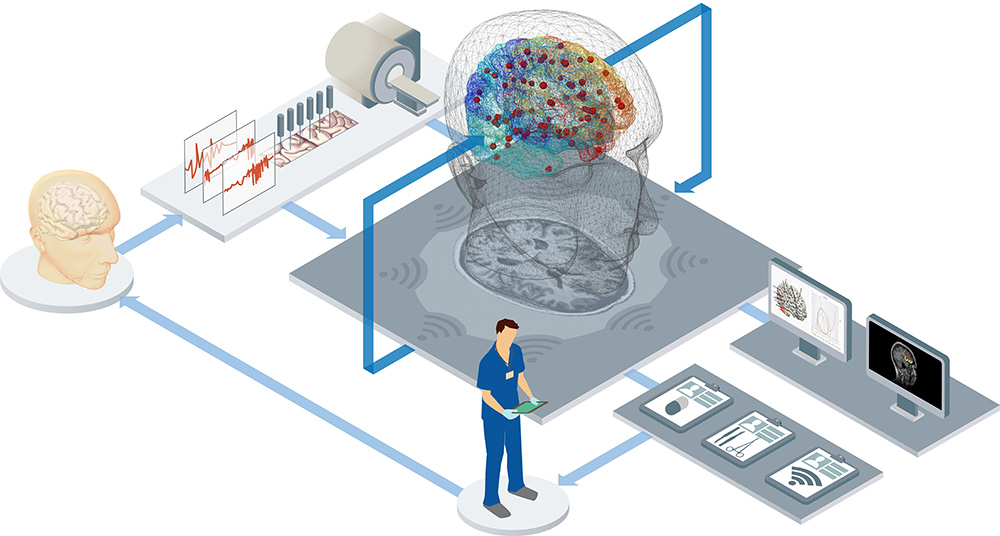Virtual brain tools to combat mental illness

Virtual models of the brain may be the way forward to overcome mental illness. In a new project, researchers at KTH Royal Institute of Technology hope to improve the treatment of patients with schizophrenia. The research has been made possible by rapid developments within AI, supercomputers and big data.
The research area, called computational neuroscience, is developing rapidly, with various brain models becoming more accurate. These models can be used to improve our understanding of how a healthy brain works and how to treat brain diseases.
“It feels absolutely fantastic to be able to actively participate in this development where we are pushing the boundaries of what is possible," says Jeanette Hällgren Kotaleski , professor of computer science and one of the researchers in Virtual Brain Twin, a major initiative with EU funding of EUR 10 million.
The research builds on previous EU investments in projects that have developed large-scale models of different parts of the brain network that can be applied down to cellular level. The aim is to use simulations to investigate and eventually predict how different drugs used to treat schizophrenia affect neuronal activity.
“We have now come so far that there is both knowledge, based on biological data, tools for analysis through AI and sufficient computing power to use simulated models of the brain to better understand what happens at different levels, cell, network and whole brain,” says Hällgren.
Variety of symptoms
The model is not a perfect copy of a brain, but includes selected parts of what is believed to be important for studying the effects of a particular medicine. The KTH researchers are primarily focusing on the so-called basal ganglia.
Schizophrenia can have a variety of symptoms. Hällgren Kotaleski believes that within four or five years the researchers' results can improve the understanding of the so-called cognitive and negative symptoms of the disease.
These create a lot of suffering in patients, even if the more treatable psychotic symptoms have been reduced. Cognitive symptoms can include impaired thinking and working memory, while negative symptoms can include patients becoming very passive and lacking initiative.
Currently, on average, medication for schizophrenia works for about 30 per cent of patients in the first stage.
Replace a drug
“I think we will understand why the treatment currently works only for some patients but not for others. Then, you can replace a drug that doesn't work with some other medicine or treatment.
How can a doctor use the platform developed by research?
“Information such as brain imaging data and specific symptoms of the individual patient can be applied to predict the effect of different medications, and more specifically, which drug can be expected to improve the specific symptoms.
The brain models in the project can also be used for other psychiatric and neurological diseases. The research is openly available and is relevant to diseases such as Parkinson's and epilepsy.
“Brain diseases cause great suffering and account for more than a third of healthcare costs. Regardless of how far we get in the project, we are involved in driving the development forward to make treating brain diseases more effective.

Text: Christer Gummeson
